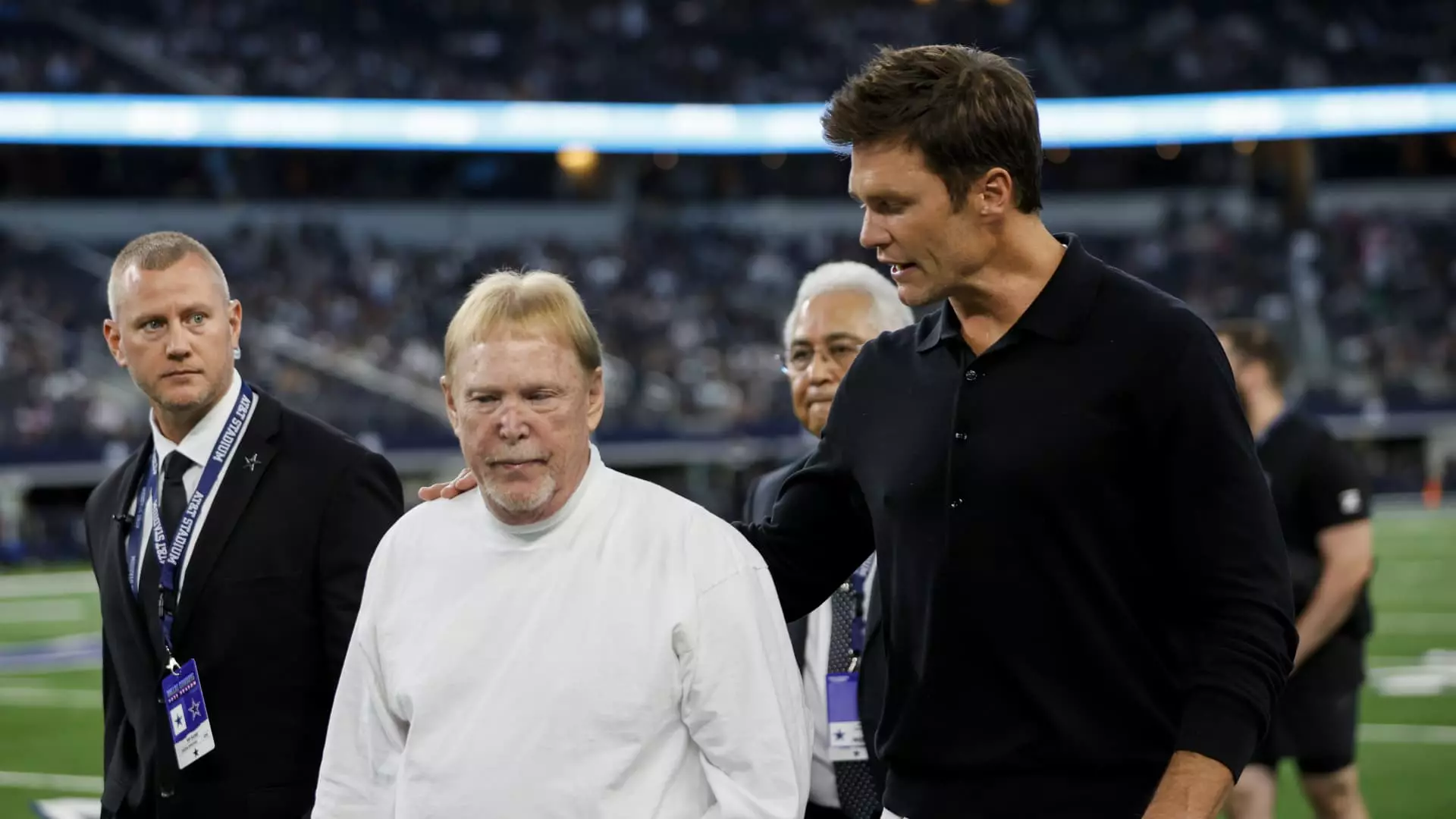In a significant development that showcases the intertwining worlds of sports and business, NFL owners have unanimously approved Tom Brady’s entry as a minority owner of the Las Vegas Raiders. Coming off the heels of a standout career that sealed his legacy as one of football’s greatest, this venture marks not only Brady’s investment in a professional team but also a strategic move into the sports ownership landscape. With a 10% stake acquired through a partnership with Tom Wagner, founder of Knighthead Capital, Brady is set to navigate a new realm characterized by competitiveness beyond the football field.
According to reports, the valuation of the Raiders stands at approximately $3.5 billion, with the partnership involving an equity investment of around $220 million. What makes this deal more intriguing is the “flip tax” of 10% that Brady and Wagner were required to pay. This fee essentially acts as a form of redistribution among the league’s 31 other owners, signaling an uncommonly cooperative framework within the NFL. While such financial maneuvers typically carry a standard discount of 20% to 25% for limited partners, Brady and Wagner have seemingly secured an impressive bargain.
The circumstances surrounding the Raiders’ valuation cannot be overlooked. Transitioning from Oakland to Las Vegas has notably skyrocketed the team’s worth. Previously languishing in the lower half of the league rankings, the Raiders are now positioned among the elite franchises, generating impressive revenues and EBITDA figures. Their substantial earnings of $780 million in 2023, which positioned them third in the league, speak volumes about how strategic location and branding influence financial success in sports.
Brady’s public statement upon the announcement of the deal further illuminates his intentions. He expresses a desire to honor the Raiders’ rich history while simultaneously enhancing the fan experience and achieving success on the field. In a league where public perception and fan engagement are paramount, Brady’s involvement may usher in innovative strategies aimed at bolstering community connections and elevating game-day experiences. His recent acquisition of a stake in the WNBA’s Las Vegas Aces also reflects his commitment to sports in the city, fostering a cross-pollination of ideas that could benefit both franchises.
Despite his enthusiasm, there are caveats to Brady’s new role. The former quarterback will face restrictions on covering the Raiders as part of his ownership stake, preventing him from participating in production meetings or having direct access to the team’s operations. These limitations raise questions about how effectively he can leverage his position to contribute to the team’s success.
Allegiant Stadium, home to the Raiders, plays a pivotal role in the financial dynamics of the team. Despite being one of the NFL’s smaller venues, its premium ticket pricing strategy—with an average ticket costing $169—has proven remarkably profitable. The stadium’s multifaceted usage for events beyond football, such as concerts and college football games, has generated over $50 million in additional revenue. This kind of innovative revenue generation is crucial for long-term sustainability, and it is likely to be an area where Brady’s influence could make an impact.
Moreover, the expansion of the Raiders’ market since their relocation cannot be overstated. With Las Vegas emerging as a sports hub, the potential for revenue generation through tourism, fan engagement, and branding is vast. The combination of a passionate local fan base and the allure of Vegas offers opportunities that transcend traditional sports marketing strategies.
As Tom Brady takes his first steps into the world of sports ownership, the implications extend beyond mere financial transactions. His influence could reshape the strategy and operational ethos of the Las Vegas Raiders, potentially leading to innovations in fan engagement and organizational success. Additionally, as the franchise continues to evolve under the weight of its newfound valuation, Brady’s presence could be a driving force in elevating the Raiders to unprecedented heights, both on and off the field. In a league that navigates constant change, Brady’s role will serve as a fascinating case study in how former players can leverage their legacy and expertise into significant ownership positions.


Leave a Reply